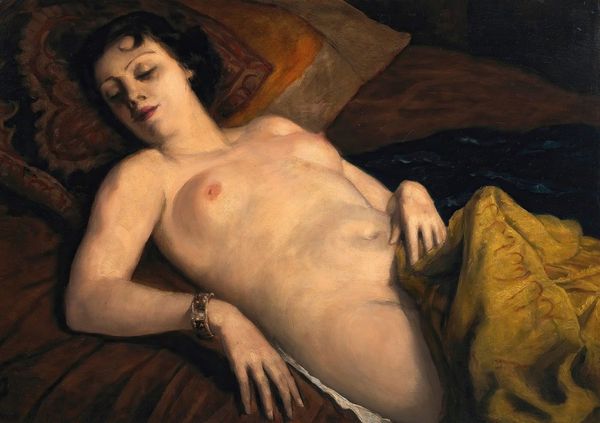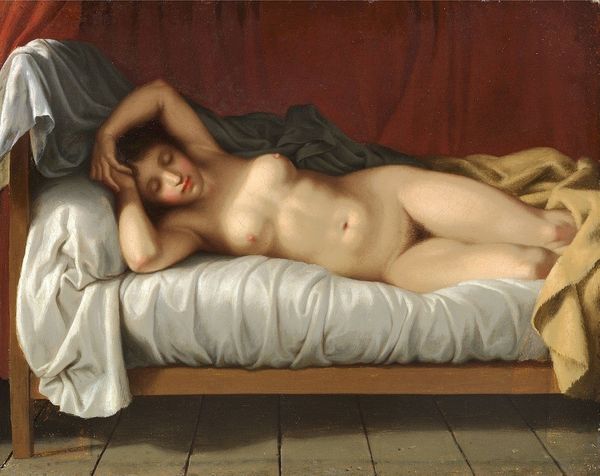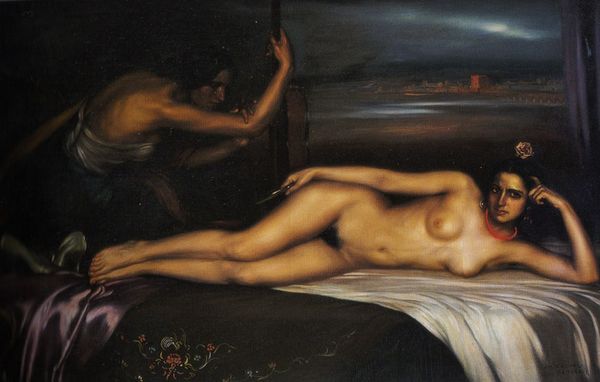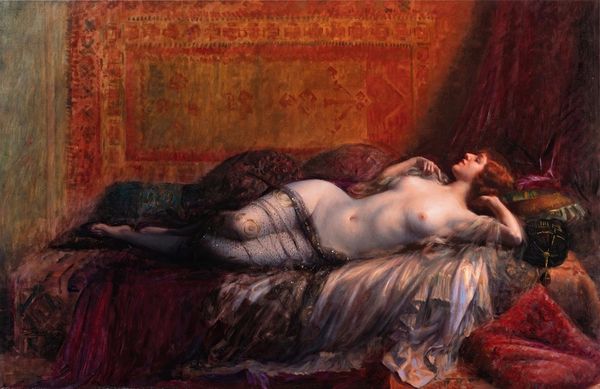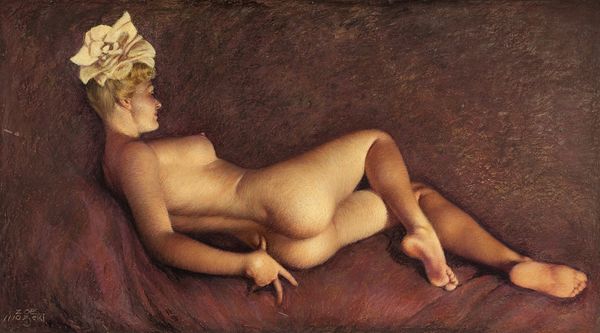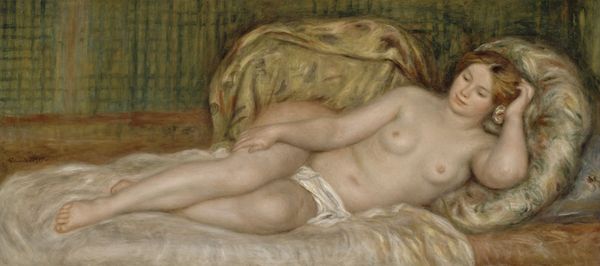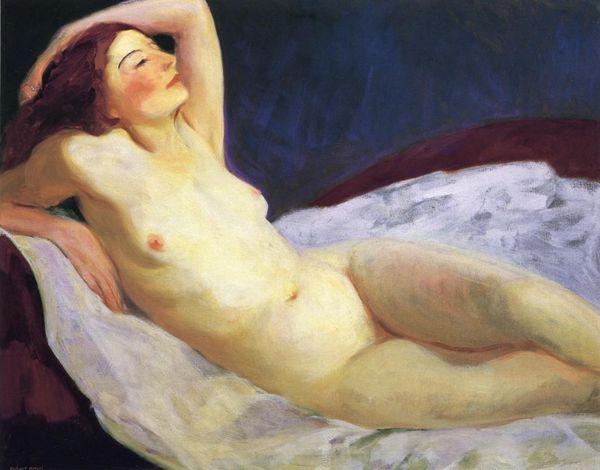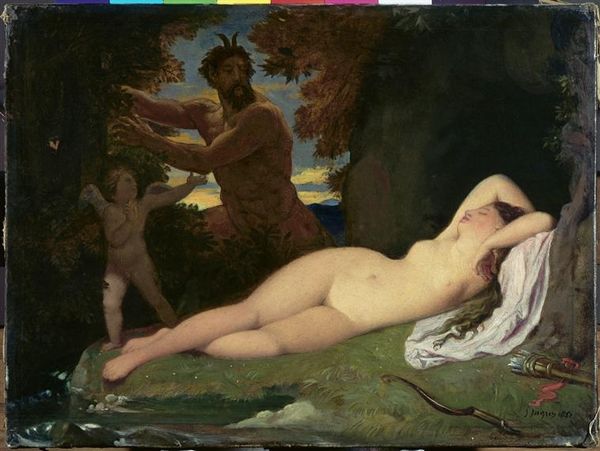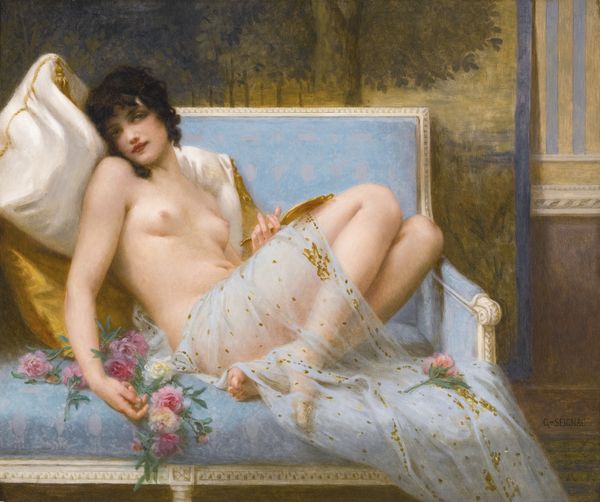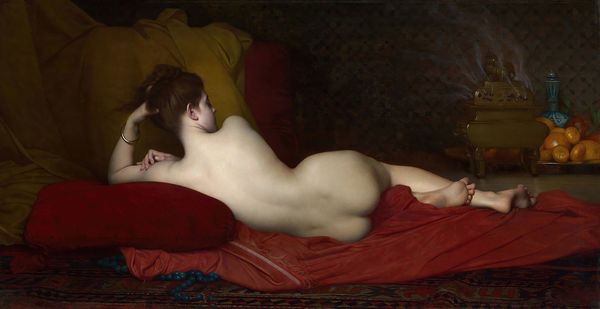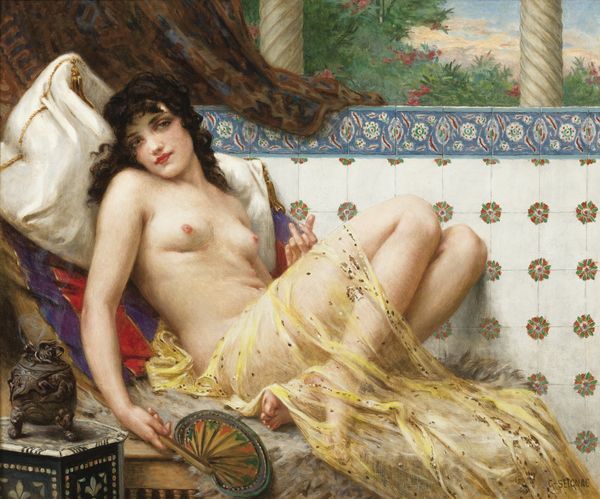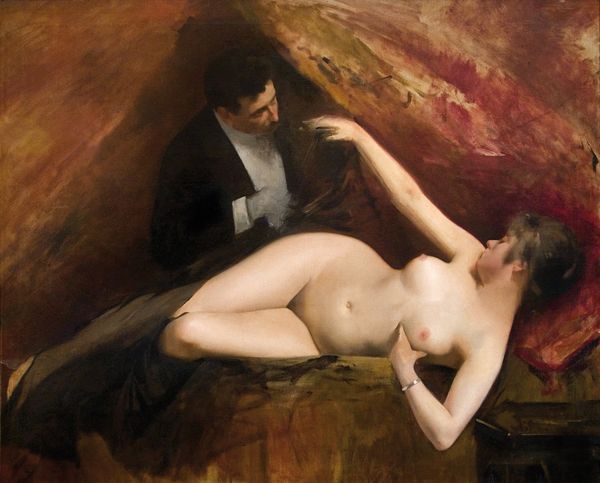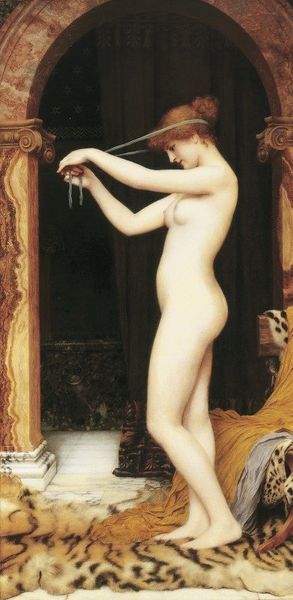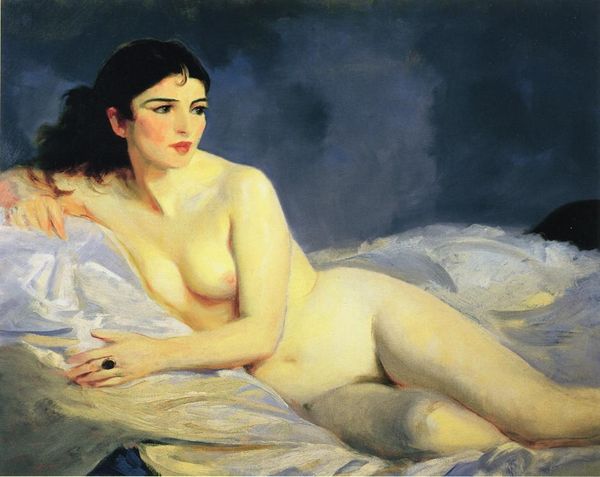
Dimensions: 93.2 x 154 cm
Copyright: Public domain
Curator: This is "Venus of Poetry," a 1913 oil-on-canvas painting by the Spanish artist Julio Romero de Torres, housed right here at the Bilbao Fine Arts Museum. Editor: The initial feeling is… melancholy, strangely so. Despite the nudity and the luxurious setting, there's an air of resigned sadness in her eyes. It's almost as if the act of being gazed upon is a burden, not an empowerment. Curator: Romero de Torres was deeply invested in Spanish identity, portraying women as embodiments of both beauty and tragedy, often through a symbolic, almost theatrical lens. "Venus of Poetry" definitely encapsulates that, right? Editor: Absolutely. Look at the duality: a nude woman, the object of artistic inspiration, juxtaposed with a man reading a text, presumably a poem, his presence almost ghostly and disconnected. It challenges the notion of the male gaze as celebratory. Curator: He was drawn to representing the marginalized. Think of the women working in the tobacco factories of Cordoba or the Roma women; there's a clear consciousness of gender roles being subverted. I can see those influences on "Venus of Poetry." It feels very subversive, especially as she meets your gaze, there's a tension created. Editor: It does evoke the "femme fatale," yes, but I think Torres adds nuance by situating his female figures in specific historical and social contexts. In that context, It could even be interpreted as an interrogation of how women, even those seen as idealized muses, are trapped by social expectations and even poetry can play a part in the constraint. Curator: The dark palette further accentuates this too, doesn’t it? You could argue this sombre tone acts as a shield. I think "Venus of Poetry" challenges Romantic conventions and shows that Torres was a thoughtful and self aware painter. Editor: Indeed. The work transcends mere representation. It questions the very dynamics of art, gender, and social perception. I think the painting's strength lies in its quiet, almost imperceptible rebellion, asking us to reconsider not only who is being portrayed but also why. Curator: Right, like the dark backdrop makes the viewer ask, is it nature or artifice? The same question can be made about the people in it too. That interplay just stayed with me. Editor: For me, what lingers is the complex expression in Venus's eyes; there's a plea for understanding that resonates deeply and stays with me.
Comments
No comments
Be the first to comment and join the conversation on the ultimate creative platform.
